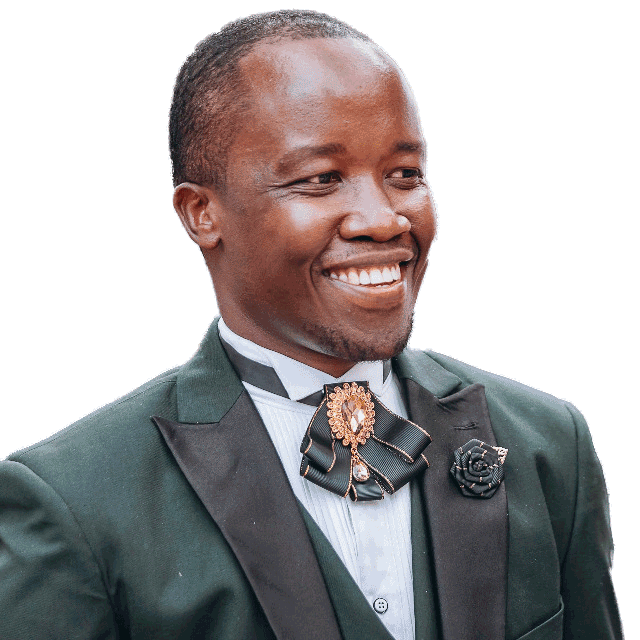The author, Dr Chapman has been directly involved in real-life family counselling for more than 35 years. At the time of writing this review, the book has 14,212 reviews at Amazon with a rating of 4.8(out of 5) and is Amazons #1 Best Seller in Christian Marriage, Marriage categories, #12 Best Seller of all Amazon books.
For those who may need to purchase the book, there are at least five different versions of the book:
- Gary Chapman – The 5 Love Languages_ The Secret to Love That Lasts.
- Gary D Chapman – The Five Love Languages Singles Edition.
- Gary Chapman – The Five Love Languages of Teenagers.
- Gary Chapman – The Five Love Languages of Children.
- Gary Chapman – The Five Love Languages Men’s Edition.
The one under review is “Gary Chapman – The 5 Love Languages_ The Secret to Love That Lasts”. The principles in the book can also be applied in all relationships. If an employer understands the love language of their employee, they will learn to express that effectively. So is a mother or father to their teenage son or daughter.
“We must be willing to learn our spouse’s primary love language if we are to be effective communicators of love.”
Summary of the book.
After many years of marriage counselling, Dr.Chapman’s conclusion is that there are five emotional love languages—five ways that people speak and understand emotional love. People speak different love languages.
Chapman believes that, once you identify and learn to speak your spouse’s primary love language, you will have discovered the key to a long-lasting, loving marriage.
We have been led to believe that if we are really in love, it will last forever. However, once the experience of falling in love has run its course, we return to the world of reality and begin to assert ourselves. He mentions that he “in-love” spell lasts for utmost 2 years.
Some couples believe that the end of the “in-love” experience means they have only two options: a life of misery with their spouse or jump ship and try again.
However, there is a third and better alternative: We can recognize the in-love experience for what it was—a temporary emotional high—and now pursue “real love” with our spouse.
Your wife’s complaints are the most powerful indicators of her primary love language.
There is nothing more powerful that you can do than to love your wife even when she’s not responding positively.
Dr Chapman also provides action points at the end of each chapter, practical ways one can implement these ideas in their relationships.
The 5 Love Languages
- Words of affirmation
- Quality time
- Receiving gifts
- Acts of service
- Physical touch
Chapman is convinced that keeping the emotional love tank full is as important to a marriage as maintaining the proper oil level is to an automobile. When your spouse’s emotional love tank is full and they feel secure in your love, the whole world looks bright and your spouse will move out to reach their highest potential in life.
Words of affirmation
Mark Twain once said, “I can live for two months on a good compliment.” If we take Twain literally, six compliments a year would have kept his emotional love tank at the operational level. Your spouse will probably need more.
One way to express love emotionally is to use words that build up. Solomon, the author of ancient Hebrew Wisdom Literature, wrote, “The tongue has the power of life and death” (Proverbs 18:21, NIV). Many couples have never learned the tremendous power of verbally affirming each other.
Verbal compliments, or words of appreciation, are powerful communicators of love. They are best expressed in simple, straightforward statements of affirmation, such as:
“You look sharp in that suit.”
“Do you ever look incredible in that dress! Wow!”
“I really like how you’re always on time to pick me up at work.”
“You can always make me laugh.”
Hearing the words, “I love you,” are important—hearing the reasons behind that love sends your spirits skyward. Insults can leave you shattered and are not easily forgotten.
Words of affirmation are one of the five basic love languages. Within that language, however, there are many dialects. All of the dialects have in common the use of words to affirm one’s spouse. Psychologist William James said that possibly the deepest human need is the need to feel appreciated. Words of affirmation will meet that need in many individuals.
Quality time
This means giving someone your undivided attention. That is, not sitting on the couch watching television together. When you spend the time that way, Netflix or HBO has your attention — not your spouse. It means sitting on the couch with the TV off, Smartphone off, looking at each other and talking, devices put away, giving each other your undivided attention. It means taking a walk, just the two of you, or going out to eat and looking at each other and talking.
Time is a precious commodity. We all have multiple demands on our time, yet each of us has the exact same hours in a day. We can make the most of those hours by committing some of them to our spouse. If your mate’s primary love language is quality time, she simply wants you, being with her, spending time.
Distractions (using your phone while you are talking, Facebooking, WhatsApping), postponed dates, or the failure to listen can be especially hurtful.
One of the most common dialects is that of quality conversation. By quality conversation, Chapman means sympathetic dialogue where two individuals are sharing their experiences, thoughts, feelings, and desires in a friendly, uninterrupted context.
Receiving gifts
Almost everything ever written on the subject of love indicates that at the heart of love is the spirit of giving. All five love languages challenge us to give to our spouse, but for some, receiving gifts, visible symbols of love, speaks the loudest.
A gift is something you can hold in your hand and say, “Look, he was thinking of me,” or, “She remembered me.” You must be thinking of someone to give him or her a gift. The gift itself is a symbol of that thought. It doesn’t matter whether it costs money. What is important is that you thought of him or her. And it is not the thought implanted only in the mind that counts but the thought expressed in actually securing the gift and giving it as the expression of love.
But what of the person who says, “I’m not a gift-giver. I didn’t receive many gifts growing up. I never learned how to select gifts. It doesn’t come naturally for me.” Congratulations, you have just made the first discovery in becoming a great lover. You and your spouse speak different love languages. Now that you have made that discovery, get on with the business of learning your second language. If your spouse’s primary love language is receiving gifts, you can become a proficient gift giver. In fact, it is one of the easiest love languages to learn.
If you speak this language, the perfect gift or gesture shows that you are known, you are cared for, and you are prized above whatever was sacrificed to bring the gift to you. A missed birthday, anniversary, or a hasty, thoughtless gift would be disastrous—so would the absence of everyday gestures.
Acts of service
This means doing things you know your spouse would like you to do. You seek to please her by serving her, to express your love for her by doing things for her.
Consider actions such as cooking a meal, setting a table, emptying the dishwasher, vacuuming, changing the baby’s diaper, picking up a prescription, keeping the car in operating condition — they are all acts of service. They require thought, planning, time, effort and energy. If done with a positive spirit, they are indeed expressions of love.
A willingness to examine and change stereotypes is necessary in order to express love more effectively. Remember, there are no rewards for maintaining stereotypes, but there are tremendous benefits to meeting the emotional needs of your spouse. If your spouse’s love language is acts of service, then “actions speak louder than words.
The words he or she most wants to hear: “Let me do that for you.” Laziness, broken commitments, and making more work for them tell speakers of this language their feelings don’t matter.
By acts of service, Chapman means doing things you know your spouse would like you to do. Love is a choice and cannot be coerced.
Physical touch
We have long known that physical touch is a way of communicating emotional love. Numerous research projects in the area of child development have made that conclusion: Babies who are held, stroked and kissed develop a healthier emotional life than those who are left for long periods of time without physical contact.
Physical touch is also a powerful vehicle for communicating marital love. Holding hands, kissing, embracing and sexual intercourse are all ways of communicating emotional love to one’s spouse. For some individuals, physical touch is their primary love language. Without it, they feel unloved. With it, their emotional tank is filled, and they feel secure in the love of their spouse.
We have long known that physical touch is a way of communicating emotional love. Numerous research projects in the area of child development have made that conclusion: Babies who are held, stroked and kissed develop a healthier emotional life than those who are left for long periods of time without physical contact.
Physical touch is also a powerful vehicle for communicating marital love. Holding hands, kissing, embracing and sexual intercourse are all ways of communicating emotional love to one’s spouse. For some individuals, physical touch is their primary love language. Without it, they feel unloved. With it, their emotional tank is filled, and they feel secure in the love of their spouse.
Implicit love touches require little time but much thought, especially if physical touch is not your primary love language and if you did not grow up in a “touching family.” Sitting close to each other as you watch your favourite television program requires no additional time but may communicate your love loudly. Touching your spouse as you walk through the room where he is sitting takes only a moment. Touching each other when you leave the house and again when you return may involve only a brief kiss or hug but will speak volumes to your spouse.
Once you discover that physical touch is the primary love language of your spouse, you are limited only by your imagination on ways to express love.
Physical presence and accessibility are crucial, while neglect or abuse can be unforgivable and destructive.
Chapman suggests three ways to discover your own primary love language:
- What does your spouse do or fail to do that hurts you most deeply? The opposite of what hurts you most is probably your love language.
- What have you most often requested of your spouse? The thing you have most often requested is likely the thing that would make you feel most loved.
- In what way do you regularly express love to your spouse? Your method of expressing love may be an indication that that would also make you feel loved.
Once again Dr Chapman also provides action points at the end of each chapter, practical ways one can implement these ideas in their relationships. He has also provided a detailed profile/test that you can use to properly determine or estimate you primarily love language.


Can’t stop re-reading this writing.
Grateful.
I am glad you found this helpful. Thank you.